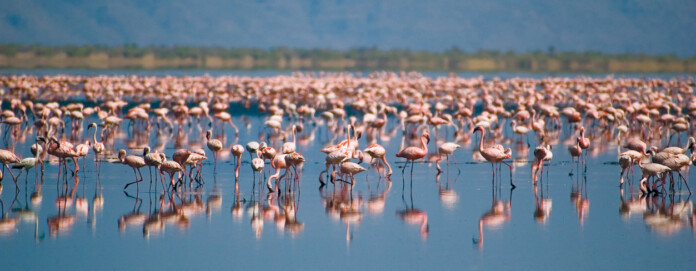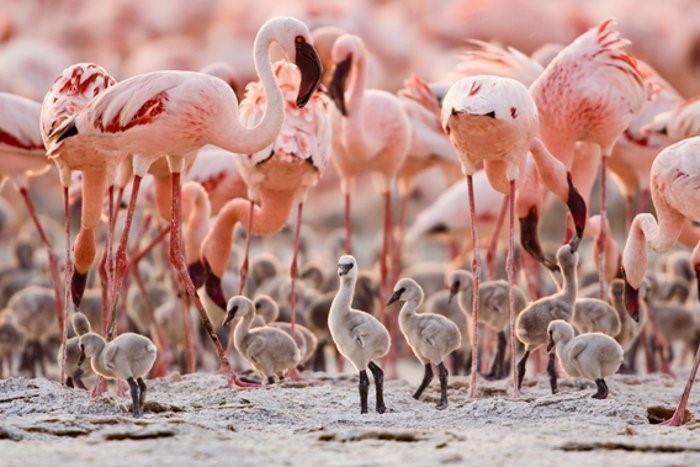How nature and businesses are inextricably connected needs to be acknowledged and understood. In fact, it is the essence of sustainability
R Gopalakrishnan, a prolific author and a highly successful business leader, says he learnt the nuances of management and life by observing nature closely. He attributes his success as one of the most successful professional business leaders of the modern India to his fondness for looking for business and life lessons from unusual places. He documented his learnings in The Case of the Bonsai Manager – Lessons for Managers on Intuition published by Penguin in 2009.
Presented here are excerpts from his talk ‘What Business Can Learn from Nature’ at the first Green Literature Festival held in December 2021. Greenlitfest (watch here)
India is a fertile land for start-ups and has seen 42 unicorns in 2021 alone. Their exuberance and fierce competition notwithstanding, start-ups have the advantage of choosing their path. He is against growth at any cost and wants business goals to be in harmony with the environmental sustainability.
He believes that the laws of nature apply to companies. Those with good business philosophy and a strong sense of identity out-survive the ones with dramatic valuations. It is after all a game of choice. Outcomes are different for entrepreneurs whose philosophy is to make the quickest buck in the fastest time from those that believe in making a small contribution to change the way society operates while booking profits.
Mr. Gopalakrishnan, after retiring as a Director at Tata Sons, has taken to advising corporates. Among numerous examples he shared, the one on Tata Chemicals is heart-warming.
In 2007, Tata Chemicals was exploring the world to find sources to mine natural soda ash. Synthetic soda ash is taken from seawater while natural soda ash appears as a deposit that can be mined. It is much less energy intensive and is considered a green soda ash. The hard-boiled chemical engineers of the company zeroed in on Lake Natron in Tanzania to mine soda ash. After about $5-10 million investment, extensive research and multiple trips to Tanzania, the company board was keen to start mining. Just as the company decided the venture was good for all stakeholders, it stumbled onto the fact that Lake Natron was a nesting site for rare Little Flamingoes.
Tata Chemicals decided against the venture to save the Little Flamingoes. Of course, the engineers were shattered. The investment was written off and the project was abandoned, much to the disappointment of the Tanzanian government because the investment was a massive $450 million. A link in the natural order of things, however, was left intact.
Awareness of nature and how it connects with business is earthy natural common sense, says R Gopalakrishnan, who has served on the boards of several companies including the Tata Chemicals. Managers pursue growth for the sake of growth, often ignoring the consequences. Here’s the list of several lessons that entrepreneurs and managers can learn from nature:
Compete, Cooperate and Collaborate
The fittest survive in nature and in business. Nature is extremely competitive and so are businesses. Nature thrives on co-operation as it should be among businesses and industries. Employees who are competitive at individual level and collaborative at a team level write business success stories.
(Here is a story of Blue Jays and Robins for a lesson on cooperation and collaboration.)
Norms are Good. Exceptions are Inevitable
Simple everyday things like a bird adapting to a new situation or figuring out new ways to tap different sources of food, hold valuable lessons for those willing to learn. Nature has rules but very graciously accommodates exceptions. It is for us to correlate, says Mr. Gopalakrishnan.
While the sun rises in the east and sets in the west for a vast majority of us, for a tiny minority in Norway nothing could be further from the truth. The sun does not set for six months, and when it does, it does not set in the west. The land of the midnight sun has its own cosmic rhythm.
The ability to have rules and yet accept exceptions is an important, but ignored, trait. The rules of nature are often bent to accommodate exceptions with ease. A tolerance towards exceptions and respect for rules is what we all need to learn.
Finish the Unfinished
The human mind naturally remembers the unfinished task better than the finished. Now, all matters related to climate are unfinished tasks and we remember them as a constant ringing in the ear that refuses to quiet down. What we lack, however, is the willingness to listen and act. According to Mr. Gopalakrishnan, “What’s happening with climate change is nature prodding you to complete your unfinished task.”
We have unfortunately been brought up by a pedagogy which ignores or, worse, belittles our intrinsic abilities like intuition. “I think it is about time we realize these aspects do not compete with but complement science.”
Adaptability Trumps Size
Nature values adaptability rather than size. Businesses value size rather than adaptability. Cheetah is a case in point. It is a superb hunter despite its size because of its adaptability. Its ability to quickly change directions gives it an enviable edge.
In the business world companies collapse if they don’t have the flexibility to adapt.
(Learn here about the amazing flexibility of Octopus)
The Case of the Bonsai Manager is Mr. Gopalakrishnan’s 20th book. Check out his books and writings here https://themindworks.me
a
Support Green Journalism
Dear Readers,
Since March 2013, SustainabilityNext (SN) has been educating and exciting thousands of entrepreneurs, executives and graduate students about the power of Sustainability in influencing our future. It’s purpose is to inspire and provoke Indians to move swiftly from awareness to belief to ACTION.
As of December 2021, SN is India’s most read digital magazine on the business of sustainability. It has been covering Green Business, Green Products, Social Entrepreneurship, Green Literature, Green Technology, among others. A youth section was added in 2021.
SN launched India’s first Green Literature Festival (www.greenlitfest.com) in June 2021 to offer a robust platform for readers and writers to hold meaningful conversations.
For SN to grow and stay relevant it needs to transition from a grant and self-funded model to a community-funded and/or institution/corporate-funded model.
Looking forward to your timely and generous support.
Why Support SN – https://sustainabilitynext.in/support/
Subscriber
Supporter
Benefactor
Sponsor
All supporters get two-year subscription to SN. You can Gift Subscription to your colleagues/friends/family.
For sponsorships and advertising please contact
Benedict Paramanand
Publisher & Editor
benedict99@gmail.com
a










